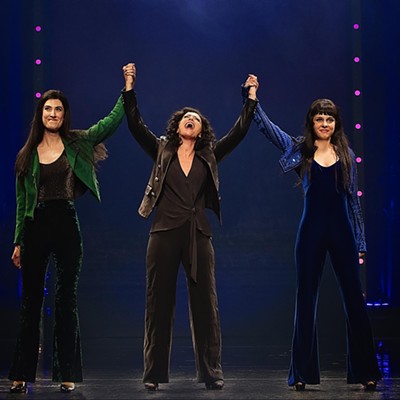The '70s happened to be both the first decade of my childhood and the true birth of the modern television sitcom. The comedies of the '70s broke new ground and changed the way Americans would view the short form comedy vehicle. So many of the great shows of the '70s were (and still are) played over and over in syndication, so much so that an entirely new generation were introduced to them again in the '80s (myself included since I was way too young to watch some of these prior to about 1975).
Unlike decades to follow, CBS was at the forefront of the this sea change in TV comedy. Not only was the network extremely popular, but it developed some of the most cutting edge and well loved shows of all time, at least two of which are certainly in the conversation for best sitcom ever made.
Note that to qualify for the list, shows had to have spent the bulk of their lifespan in the decade of the '80s, which disqualifies sitcoms like WKRP in Cincinnati and Alice. It should also be noted that if this were a list of the best COMEDIES, The Carol Burnett Show would rank highly, but it wasn't a sitcom.
10. The New Dick Van Dyke Show (1971-1974)
Premise: CBS reboots a comic icon with mixed results.
Creative titles weren't the strong suit of the era (note the numerous similar names below), particularly when it came to rekindling the career of a former star. In fact, CBS was so desperate to sign Van Dyke on again, they agreed to film the show near the star's home in Arizona. It lasted four seasons, but paled in comparison to the classic Dick Van Dyke Show, though it did feature another rather spry "Dick Van" actor in this case, Patton, as Dyke's boss. There are enough jokes in that last sentence to fill an entire episode...ba dum dum.
9. Here's Lucy (1968-1974)
Premise: Lucy reboots Lucy to feature real life children.
Here's something you don't see everyday: a star who quits a popular show to start another show with a similar name so she could cast her real life children as her sitcom kids. If anyone could, it was Lucille Ball. Still, this show was a throwback to a different time in TV and, as such, didn't make it out of the early '70s. But, she did manage to get her kids on TV, so there's that.
8. Rhoda (1974-1978)
Premise: Tough, single woman making it in the big city...with New York accent.
A spinoff of the wildly successful Mary Tyler Moore Show, Valerie Harper played "Mehr's" best friend and the title role of the spinoff. Funny, sarcastic and very New York, Rhoda, her mom and a cast of characters made some pretty entertaining TV. It also spawned the voice of Marge Simpson, Julie Kavner, who was later cast as the blue-haired cartoon mom by Simpsons and Rhoda creator James L. Brooks.
7. One Day at a Time (1975-1984)
Premise: Divorcée takes teenage daughters to Indianapolis because why not?
Yet another successful Norman Lear sitcom (this list has quite a few of them), One Day at a Time featured a spunky divorced mother of two and her sometimes difficult teenage daughters. Art mirrored life for one of them, Mackensie Phillips, who struggled with addiction during the show's filming. The other daughter was played by Valerie Bertinelli, a.k.a. the former Mrs. Eddie Van Halen, who also had drug problems, but none that affected her role on the show. It may not seem like much now, but a show centered around a divorced woman in the '70s was considered extremely provocative.
6. The Bob Newhart Show (1972-1978)
Premise: Affable shrink deals with the antics of friends and patients.
Though this and the show Newhart in the '80s shared the same star, this was a very different show. Newhart played a psychiatrist whose friends were sometimes crazier than his patients, most notably, his neighbor, a pilot who was often in Newhart's apartment whether he and his wife -- played by the wonderful Suzanne Plechette -- wanted him there or not.
This story continues on the next page.
5. Good Times (1974-1979)
Premise: Black family in the Chicago projects are dy-no-mite!
A spinoff of a spinoff, the show's lead character, Florida Evans, was a maid in Maude, which was a descendant of All in the Family. Good Times was set, at least in theory, in the infamous Cabrini-Green housing projects of Chicago. The family was beset with money problems and issues relating to their surroundings (gang violence, drugs, poverty), but they held it together and were really funny in the process, particularly budding star JJ Walker and his catch phrases. It also featured a nearly all-black cast, very rare for that era.
4. The Mary Tyler Moore Show (1970-1977)
Premise: Plucky journalist turns the world on with her smile.
Aside from a seriously formidable young cast and the signature co-star of one of the most well loved shows of all time (The Dick Van Dyke Show), this newsroom sitcom also featured perhaps the most famous hat toss in history. With a cast featuring stars like Ed Asner, Ted Knight, Gavin MacLeod, Betty White, Cloris Leachman and Valerie Harper, it's no wonder the show had such success. But, at the center was Moore, a brilliant comedian and insanely likable personality. Her character became the basis for numerous sitcoms featuring funny, single women in the big city.
3. Maude (1972-1978)
Premise: Feminist takes on the haters in hilarious fashion.
If you think people get pissed about abortion today, imagine a show with a middle-aged woman set in the 1970s deciding to abort a pregnancy. Needless to say, it was one of the most controversial moments in the history of the small screen, and it was banned by numerous stations throughout the country. Still, this spinoff of All in the Family (Maude was Edith's cousin), was not all politics, but it was always funny. The show's star, Bea Arthur, was as outspoken and abrasive as they come and some of the more memorable moments from this or any other show were when Archie Bunker, her clear nemesis despite being married to her cousin, was in the same room with her. It was brilliant comedy.
2. M*A*S*H (1972-1983)
Premise: Korean War doctors wise crack their way through death and danger.
Film adaptations can be a tough sell, but not this one. In fact, M*A*S*H is still the longest running non-cartoon sitcom of all time. Like the film, it was set in a field trauma unit during the Korean War and featured some of the same sarcastic characters, most notably "Hawkeye," played by Alan Alda. But, there were some significant differences. While the show was certainly funny and, at moments, intensely dramatic, it didn't have quite the edge of the film, as demonstrated by the neutered theme song, "Suicide is Painless," modified to instrumental format only for TV. But, despite this and multiple character changes during its run, audiences ate it up. The final climactic episode is still the most watched series finale in television history.
1. All in the Family (1971-1979)
Premise: Lovable bigot tries to come to grips with a changing world.
If there were a Mount Rushmore of television sitcoms, it would be difficult to argue that All in the Family wouldn't deserve one of the spots on the face of that mountain. One of the most forward thinking and hilarious shows of all time, it features perhaps the greatest character in the television history in Archie Bunker. Part working class hero, part stunted racist, it is his battle to face the changes of modern society that constantly force him into ridiculous and hysterically funny situations. His best exchanges are with his wife, Edith, a sweet "dingbat" who plays foil to Archie's bitter temperament, and "Meathead," Archie's lefty son-in-law. The show set the standard for both the subject matter that could be put on TV (draft dodging, homosexuality, race relations, women's lib) and the way it could be addressed: with compassion and a king-sized sense of humor.






